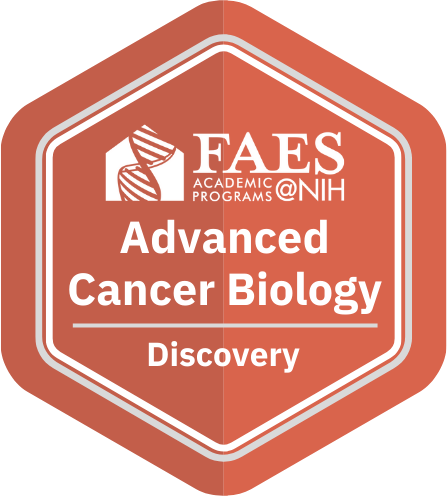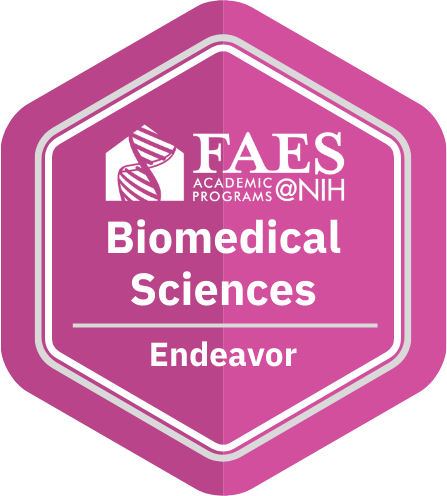Course Description
If you do not currently hold an NIH-issued badge, we ask that you email us at registrar@faes.org as soon as you register so we can start the visitor process. Once you confirm that you do not hold a current NIH badge you will receive a secure link from the VisitNIH system which will prompt you to input your information; further steps may be necessary if you are a non-U.S. person visitor. We also ask that you review the NIH Visitor Information page, so you are prepared for your visit to the NIH Bethesda Campus. Please note this process may take up to 45 days.
This is an in-person laboratory training workshop taking place at the National Institutes of Health, Main Campus in Bethesda, MD on December 8 - 12, 2025.
Overview
Sequencing of the human genome was not the endpoint of our goal in understanding human genetics. The chemical modifications to DNA and the chemical interactions involving the manufacture of proteins represents a second level of human genetics termed, epigenetics or epigenomics. Epigenetics refers to the study of heritable changes in gene expression that occur without a change in DNA sequence. Research has shown that epigenetic mechanisms provide an additional layer of transcriptional control that regulates how genes are expressed. Epigenetic abnormalities are associated with genetic disorders, cancer, autoimmune diseases, aging and pediatric syndromes, among others.
This course will address the basic principles of epigenetics, the role of epigenetic mechanisms in normal development and human disease, and the development of epigenetically-effective drugs. The objective of the program is to provide a solid foundation of information enabling participants to design experiments when returning to their own research lab. Furthermore, to provide a solid background in order to understand the literature in this rapidly growing field.
Participating instructors are primarily active researchers from neighboring institutes and universities who have been publishing in these areas for several years.
Topics
Lectures cover basic mechanism underlying DNA methylation, histone modification, chromatin organization, noncoding RNA, and gene repression. Moreover, a broad range of topics will be covered in epigenetic research including cancer, development, environmental health, and immunology. The lectures also provide the participant with practical information concerning current techniques in epigenetic research. For example, the application of ChIP-Seq, ATAC-Seq, CHARM, Illumina bead arrays, restriction enzyme analysis, bisulfite sequencing, and RNA interference are discussed, and context is provided via descriptions of experimental design, data analysis, and interpretation and validation of results.
In the wet lab settings, we will teach chromatin extractions, immune precipitation, and quantitative ChIP-specific PCR, which represent a core foundation for current next-generation sequencing approaches (such as ChIP-Seq) to chromatin analysis.
The computational lab aims to provide an understanding of the bioinformatic approaches and computational methods used to analyze DNA methylation and chromatin data, and how to integrate this data with other data modalities, such as gene expression. Such approaches are relevant to the analysis of data from many cutting-edge technologies, and should prove useful for those interested in conducting a variety of epigenetic experiments and research projects.
Lecture and Laboratory Topics Include:
- Intro to Chromatin Organization and DNA Modifications
- Gene Expression and Non-coding RNAs, including circular RNA
- Epitranscriptomics
- Epigenetic research in Plants and Marines, as well as Cancer, Development, and Environmental Health
- Methylation-specific PCR, Illumina Bead Arrays, DNA Hydroxymethylation, Pyrosequencing, Restriction
- Chromatin Immunoprecipitation, ChIP-based qRT-PCR, ChIP-Seq, Cut&Run, ATAC-Seq, HiC, DNase-Seq
- Virtual lab experience on chromatin extraction, immunoprecipitation, performance and analysis of ChIP-specific PCR
- Hands-on-experience on high-throughput data analysis and integration
Microcredential(s):
This workshop applies toward the Advanced Cancer Biology Discovery and the Biomedical Sciences Endeavor digital badges.



Credit
Although no grades are given for courses, each participant will receive Continuing Education Units (CEUs) based on the number of contact hours. One CEU is equal to ten contact hours. Upon completion of this course each participant will receive a certificate, showing completion of the workshop and 3.5 CEUs.
Refund Policy
Follow the link to review Workshop Refund Policy.
Notification
- All cancellations must be received in writing via email at registrar@faes.org.
- Cancellations received after 4:00 pm (ET) on business days or received on non-business days are time marked for the following business day.
- All refund payments will be processed by the start of the initial workshop.


